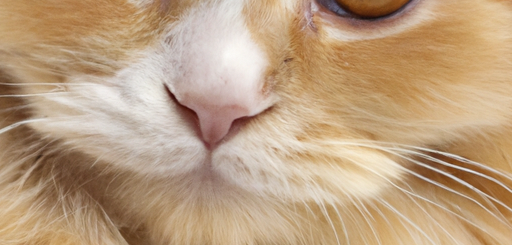Dealing With Common Cat Health Issues: Recognizing Symptoms And Seeking Veterinary Care
Are you a cat owner? Cats can be great friends and companions, but just like humans, they can sometimes have health issues. It’s important for you to know how to recognize symptoms of common cat health problems and when to seek veterinary care. In this article, you will learn about some common cat health issues and what signs to look out for. By being aware and taking action, you can help keep your furry friend healthy and happy.
Common Cat Health Issues
Cats, just like humans, can experience various health issues throughout their lives. As a responsible cat owner, it’s essential to be aware of these common health problems and know how to recognize the symptoms. By catching these issues early on and seeking proper veterinary care, you can help your feline friend live a long and healthy life. Some of the most common health issues in cats include upper respiratory infections, urinary tract infections, skin problems, dental issues, parasites, digestive problems, allergies, eye and ear infections, cancer, and obesity.
Upper Respiratory Infections
Upper respiratory infections are quite common in cats, especially those living in multi-cat environments or animal shelters. Cats with a weak immune system or stress-reduced immunity are more prone to these infections. Symptoms of upper respiratory infections in cats include sneezing, coughing, runny nose, watery eyes, congestion, and decreased appetite. If you notice any of these symptoms in your cat, it’s important to seek veterinary care promptly.
Urinary Tract Infections
Urinary tract infections can be painful and uncomfortable for cats. These infections often occur when bacteria enter the urinary tract and can cause symptoms such as frequent urination, urinating outside the litter box, straining to urinate, bloody urine, and excessive licking around the genital area. If your cat exhibits any of these signs, it’s crucial to consult with a veterinarian who can diagnose and treat the infection.
Skin Problems
Just like humans, cats can also experience various skin problems. Fleas, mites, allergies, fungal infections, and dry skin are some common causes of skin issues in cats. Common symptoms of skin problems include excessive scratching, hair loss, redness, swelling, scabs, and flaky skin. If you notice any of these signs, it’s important to seek veterinary care to alleviate your cat’s discomfort and prevent further complications.
Dental Issues
Dental issues are not uncommon in cats, with dental disease affecting a significant number of feline companions. Poor dental hygiene can lead to gum disease, tooth decay, and even tooth loss in cats. Symptoms of dental problems in cats include bad breath, swollen or bleeding gums, difficulty eating, pawing at the mouth, and drooling excessively. Regular dental check-ups with a veterinarian and proper dental care can help prevent these issues and keep your cat’s teeth healthy.
Parasites
Cats can be hosts to a variety of parasites, including fleas, ticks, ear mites, and worms. These parasites can cause discomfort, pain, and even transmit diseases to your furry friend. Symptoms of parasite infestation vary depending on the type of parasite but may include itching, scratching, hair loss, visible parasites, diarrhea, and weight loss. If you suspect your cat has parasites, it’s crucial to seek veterinary care to eliminate the infestation and prevent further complications.
Digestive Problems
Digestive problems such as diarrhea, constipation, and vomiting can occur in cats for a variety of reasons. Common causes include dietary changes, food allergies, infections, parasites, and digestive disorders. Symptoms of digestive issues in cats include loose or watery stools, blood in the stool, vomiting, decreased appetite, and lethargy. Prompt veterinary attention can help identify the cause of the issue and provide appropriate treatment to alleviate your cat’s discomfort.
Allergies
Allergies can affect cats, just like they can affect humans. Cats can be allergic to various substances, including certain foods, environmental allergens, such as pollen or dust mites, and even fleas. Allergy symptoms in cats can include skin irritation, excessive scratching, sneezing, watery eyes, and respiratory issues. If you suspect your cat has allergies, it’s essential to consult with a veterinarian who can help identify the specific allergen and recommend the appropriate treatment or management plan.
Eye and Ear Infections
Eye and ear infections can occur in cats, leading to discomfort and potential complications if left untreated. Symptoms of eye infections in cats include redness, discharge, squinting, and cloudiness in the eye. Ear infections may cause your cat to shake or scratch their head, have a foul smell or discharge from the ear, and show signs of discomfort. Seeking veterinary care is crucial to diagnose the infection accurately and provide appropriate medication to treat it effectively.
Cancer
Cancer is a serious health issue that can affect cats. Some common types of cancer in cats include lymphoma, mammary gland cancer, and skin cancer. The symptoms of cancer in cats vary depending on the type and location of the tumor but can include weight loss, loss of appetite, lumps or masses, chronic pain, and changes in behavior. Early detection and proper treatment are essential for managing cancer in cats, so it’s important to seek veterinary care if you notice any concerning symptoms.
Obesity
Obesity is a growing concern among cats, just as it is in humans. Cats that are overweight or obese are at a higher risk of developing various health issues, such as arthritis, diabetes, and heart disease. Symptoms of obesity in cats include excessive weight gain, difficulty breathing, decreased activity, and increased lethargy. Maintaining a balanced diet, providing regular exercise, and seeking veterinary guidance can help manage your cat’s weight and prevent obesity-related health problems.

This image is property of images.pexels.com.
Recognizing Symptoms
As a cat owner, it’s vital to be able to recognize potential health issues in your feline friend. By paying attention to the symptoms, you can detect problems early on and seek veterinary care promptly, increasing the chances of successful treatment and a speedy recovery. Here are some common symptoms associated with the previously mentioned health issues:
Respiratory Symptoms
Respiratory symptoms, such as sneezing, coughing, nasal discharge, labored breathing, and wheezing, may indicate upper respiratory infections or other respiratory problems.
Urinary Symptoms
Urinary symptoms include frequent urination, urinating outside the litter box, straining to urinate, bloody urine, and excessive licking around the genital area, which may point to urinary tract infections or other urinary issues.
Skin Symptoms
Excessive scratching, hair loss, redness, swelling, scabs, rashes, and flaky skin can be signs of skin problems, including allergies, infections, or parasites.
Dental Symptoms
Symptoms of dental issues may include bad breath, swollen or bleeding gums, difficulty eating, pawing at the mouth, drooling excessively, and visible tartar or decay on the teeth.
Parasite Symptoms
Visible fleas or ticks, excessive scratching, hair loss, changes in appetite, weight loss, gastrointestinal issues, and diarrhea can indicate a parasite infestation.
Digestive Symptoms
Digestive symptoms may encompass diarrhea, constipation, vomiting, blood in the stool, decreased appetite, weight loss, and general lethargy.
Allergy Symptoms
Allergy symptoms can manifest as skin irritations, excessive scratching, sneezing, watery eyes, respiratory issues, gastrointestinal problems, or changes in behavior.
Eye and Ear Symptoms
Eye symptoms can include redness, discharge, cloudiness, squinting, or swollen eyelids, while ear symptoms may consist of foul odor, discharge, itching, shaking or tilting of the head, and signs of discomfort.
Cancer Symptoms
Cancer symptoms in cats vary depending on the type and location of the tumor but may involve weight loss, appetite changes, lumps or masses, chronic pain, and alterations in behavior or activity levels.
Obesity Symptoms
Obesity symptoms may include excessive weight gain, difficulty breathing, decreased activity, laziness, and reluctance to play or engage in physical activity.

This image is property of images.pexels.com.
Seeking Veterinary Care
When you notice any concerning symptoms in your cat, it’s important to seek veterinary care promptly. Your veterinarian will be able to diagnose the underlying cause of the symptoms and provide appropriate treatment or management strategies. Here are some key considerations when seeking veterinary care for your cat:
Choosing a Veterinarian
Choosing a veterinarian for your cat is an important decision. Look for a veterinarian who specializes in feline care or has experience with cats. Ask for recommendations from friends, family, or fellow cat owners, and consider scheduling a consultation to get a feel for the veterinarian’s approach and expertise.
Regular Check-ups
Regular check-ups are essential for maintaining your cat’s health and detecting any potential problems early on. Your veterinarian can perform a thorough physical examination, update vaccinations, and perform preventive screenings. Follow your veterinarian’s recommended schedule for check-ups based on your cat’s age, health status, and any pre-existing conditions.
Emergency Care
In case of emergencies, it’s crucial to have a plan in place. Research emergency veterinary clinics in your area and have their contact information readily available. Be aware of common emergency scenarios, such as ingesting toxic substances, trauma, or sudden illness, and know when to seek immediate veterinary assistance.
Preparing for the Veterinary Visit
Before visiting the veterinarian, make sure to gather any relevant information about your cat’s symptoms, behavior changes, or exposure to potential risks. Bring any medical records, vaccination history, or previous test results to help the veterinarian assess your cat’s overall health. It’s also important to bring your cat in a proper carrier to ensure their safety during transportation.
Identifying the Problem
During the veterinary visit, the veterinarian will perform a thorough examination and may recommend additional tests or diagnostics to identify the underlying problem. Be prepared to answer questions about your cat’s symptoms, duration, and any recent changes in their environment or routine. The veterinarian may also ask about your cat’s diet, exercise, and overall behavior.
Ask Questions
Don’t hesitate to ask questions about your cat’s health during the veterinary visit. It’s essential to understand the diagnosis, treatment options, and any potential risks or side effects. Ask about preventive measures, lifestyle changes, or dietary recommendations that can support your cat’s recovery or prevent future health issues.
Treatment Options
Once the veterinarian identifies the problem, they will discuss treatment options with you. These may include medications, dietary changes, lifestyle adjustments, surgical intervention, or other forms of therapy. Make sure to understand the recommended treatment plan and any necessary follow-up visits or care requirements.
Follow-up Care
Some health issues may require ongoing treatment or periodic follow-up visits. It’s important to adhere to the veterinarian’s instructions and schedule any recommended follow-up appointments. Monitor your cat’s progress and report any changes or concerns to your veterinarian promptly.
Preventive Measures
In addition to treating existing health issues, your veterinarian will likely recommend preventive measures to keep your cat healthy. This may include vaccinations, parasite prevention, dental care, regular exercise, and a balanced diet. Follow these preventive measures to minimize the risk of future health problems in your cat.
Cost Considerations
Veterinary care can involve costs, and it’s essential to consider these factors when seeking care for your cat. Discuss potential treatment costs or payment options with your veterinarian beforehand. Consider pet insurance or budgeting for routine and emergency veterinary expenses to ensure that your cat receives the needed care without financial strain.
By recognizing the symptoms of common health issues, actively seeking veterinary care, and following the veterinarian’s recommendations, you can help keep your beloved feline friend in good health and ensure a long and happy life together. Remember, your veterinarian is your best ally in managing your cat’s health, so don’t hesitate to reach out for professional advice and assistance when needed.

This image is property of images.pexels.com.









